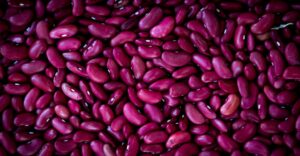The kidneys are one of many vital organs in the human body. They filter blood, balance electrolytes and other fluids, and produce hormones that regulate blood pressure and metabolism. If something goes wrong with these functions, it can cause many adverse reactions that can cause debilitating diseases in the human body. Kidney stones are one of the most common kidney-related diseases, but other conditions such as chronic kidney disease and diabetes have similar symptoms as well. However, if left untreated, these chronic illnesses can cause significantly more damage to your body.
If you are curious to learn more about kidney health, take a look at the key differences between kidney-related diseases so you can be better informed about your health.
What are kidney stones?
Kidney stones are small, hard, calcified deposits that form in the kidneys. They can consist of various minerals, including calcium oxalate or uric acid, and are typically a result of an excess amount of adverse substances in the urine.
The symptoms vary depending on the location and size of a kidney stone, but these calcified masses often cause immeasurable pain in the back, groin, or side when they move through the ureter to block it off from the bladder. The pain can also be so intense and painful, that they can cause blood in the urine (which may turn it a pinkish color). It can also cause cloudy urine with an intense smell or excessive urination to try and flush out the stone.
While there are many types of kidney stones, they are most commonly found among individuals who are over the age of 40, and they have been found to be twice as common among males than females. Causes of kidney stones can be attributed to genetic predisposition as well as diet and poor lifestyle choices, which include a diet high in purines, low water intake, and dietary calcium. Some additional lifestyle choices that can increase the likelihood of kidney stones include excess consumption of alcohol and smoking and a low activity level.
To manage kidney stones, it is important to drink lots of fluids and avoid certain foods, such as cheese. By doing so, you may eventually be able to pass the stone without any additional medical treatment. However, it may also be necessary for people who have kidney stones to take medications or surgery in order to correct the problem.
What is chronic kidney disease (CKD)?
Chronic Kidney Disease is the gradual deterioration of kidney function over time due to any number of factors, including diabetes, hypertension, or other diseases that negatively affect renal health. It can also be caused by an autoimmune disorder where antibodies attack the glomeruli.
Kidney disease refers not just to kidney stones, but other conditions that can affect your kidneys’ function. CKD is most common in adults over the age of 50 with conditions such as diabetes, hypertension, or a family history of renal failure.
The severity of kidney disease can vary from mild to severe, which will affect how quickly it progresses and whether or not dialysis is necessary for survival. CKD goes through three different stages: Stage I CKD does not require any special treatment, but if a more advanced stage like stage II or III occurs, you may need to speak with a nephrologist about treatment options, such as dialysis or a kidney transplant.
It’s important to follow a healthy diet if you have kidney disease in order to slow the progression and preserve your remaining kidney function. By eating a kidney-friendly diet, you can ensure your kidneys aren’t working too hard to filter your blood, which can cause more damage. You can learn more about risk of kidney disease and major risk factors by visiting the National Kidney Foundation.
What is diabetes?
Diabetes is a chronic condition in which the body does not produce enough insulin and/or cannot properly use that insulin. With diabetes, there are higher levels of sugar (known as glucose) circulating around your system than normal. This can lead to long-term complications such as kidney damage, heart disease, blindness or nerve damage if left untreated.
Diabetes can have a major impact on your kidney function. The high levels of glucose in the blood can damage the filtration membranes inside your kidneys, which causes them to work overtime and eventually fail.
Diabetes is most common in people over the age of 40, but it can also affect those who are only in their teens. Symptoms include increased thirst, frequent urination, and unexplained weight loss.
If you think you may have diabetes, it’s important to see a doctor right away for diagnosis and treatment before the condition worsens. Treatment may include medication, a new diet plan, or surgery.
What is hypertension?
One of the most common kidney-related diseases is hypertension (or high blood pressure). Unlike other kidney-related conditions, hypertension is usually a result of behaviors such as smoking cigarettes or eating unhealthy foods.
Often, hypertension is diagnosed with an exam and blood pressure readings. Treatment for hypertension may depend on factors such as how long the condition has been present or whether it’s a result of other conditions that would need to be addressed first. In some cases, medication is prescribed; in others, surgery takes place if medications are ineffective.
Hypertension can cause your kidneys to work harder than they should by causing increased levels of creatinine in your bloodstream — a waste product produced when your muscles are worked — that your kidneys must filter out. This puts stress on the organs and can lead to chronic kidney disease if left untreated.
Talk to your doctor about regular kidney function tests that can help you determine your level of kidney help. From those tests, your doctor should be able to recognize any abnormalities and provide recommendations for preserving your kidney function so you can live a healthy and happy life.
Find a health care professional focused on diabetes near you.






